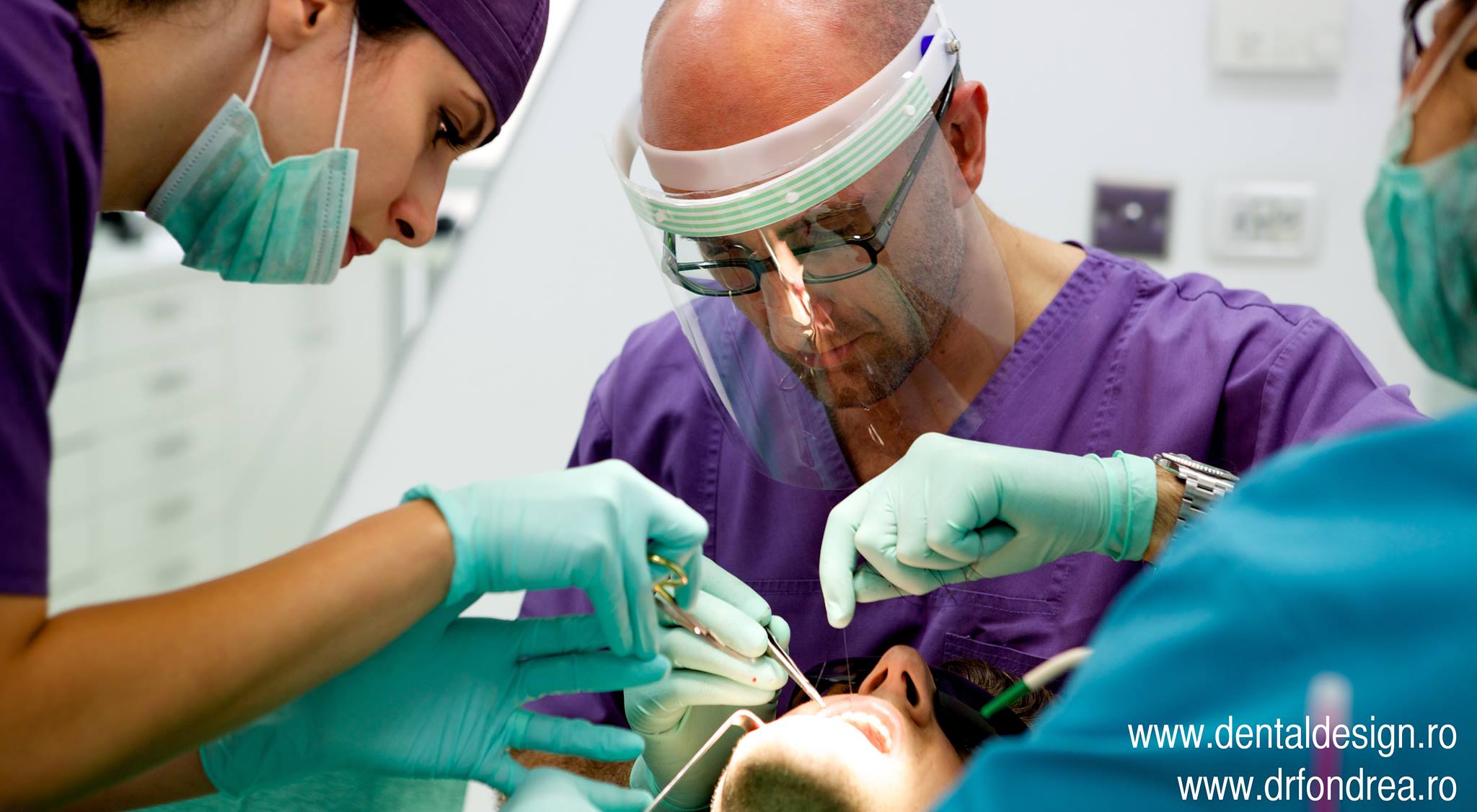
The dental practice is a high risk of disease transmission. That is why, infection prevention and control is an important part of safe patient care. Concerns about the possible spread of blood-born diseases, and the impact of highly contagious respiratory diseases and other illnesses, require practitioners to establish, evaluate and continually update and monitor their infection prevention and control strategies and protocols.
Three main elements are required in the spread of an infection:
By removing any one of this elements, an infection cannot occur.
Understanding the ways of transmission is necessary for designing and implementing effective prevention and control strategies. In the dental office, the three main ways of transmission of micro-organisms are:
There are certain universal precautions which represent the strating point for the dentist in infection control in the dental office.They are the following:
A pacient's medical history must be performed for everyone that enters the dental office for the first time, and that information has to be updated from time to time. The medical questionnaire and the discussion with the pacient should not be missed from the standard protocol of the dental office.
The discovery of a pacient with infection must be followed by a predeterminated protocol. It is unethical to refuse an infected pacient in order to avoid the exposure of the doctor. Reducing the extent of contamination of the dental interventions can be achieved partly by the use of rubber dam, pre-procedural antiseptic mouthrinses, high volume evacuation and correct patient positioning. Rubber dam minimises the spread of blood or saliva. When rubber dam is not applied, high volume aspiration becomes essential.
Any instruments placed into the contaminated zone for a treatment session but not used during that session must be regarded as contaminated. For this reason all bulk supplies such as opened boxes of gloves, cotton rolls or gauzes must be stored outside the contaminated zone and protected from contamination from splashes and aerosols. For equipment that is difficult to clean, a protective covering such as a plastic wrap may be necessary.
Dental prostheses and appliances, as well as items used in their fabrication (e.g. impressions, occlusion rims, bite registrations), are potential sources for cross-contamination. Impressions, prostheses or appliances should be cleaned and disinfected as soon as possible after removal from the patient’s mouth, before drying of blood or other organic debris.
Effective communication and coordination between the dental office and the dental laboratory will ensure that:
The contaminated items must be sent to the dental laboratory with a red label.
All instruments must be properly cleaned, rinsed and dried prior to either disinfection or sterilization. This step is essential, as residual organic debris will compromise the disinfection and sterilization process.
The sterilization section of the processing area should include the sterilizer and related supplies, with adequate space for loading, unloading and cool down. The area may also include biological indicators and incubators for conducting spore tests, as well as enclosed storage for sterile and single-use disposable items.
The sterilization can be achieved by steam under pressure at 121° C for 15 minutes (autoclaving) or by dry heat at 170°C for 60 minutes.
The term “hand hygiene” has replaced handwashing and includes the use of plain or antimicrobial soap with running water, as well as alcohol-based hand rub. Hand hygiene will be performed at the beginning of the day, after every patient and at the end of the day.
When using soap and water for routine care:
It is also recommended that the doctor keeps their fingernails short and clean and avoid wearing any jewelery.
The protection of the operating team is mandatory. It is achieved by the use of personal protective equipment to shield their own tissues from exposure to potentially infectious material and also by immunization.
Additional protective barriers and techniques should be employed to shield patients from potentially infectious material.
Patients should be provided with protective eyewear to shield their eyes from spatter and debris created during dental procedures. Protective eyewear should be worn throughout the dental appointment, then cleaned and disinfected after use.
The personal protective equipment includes:
The protective clothing can be made from a variety of materials and it must withstand to wash over 60°, temperature at which the viruses are destroyed.
The protective clothing should not be washed with the rest of the normal clothes.
It is the dentist’s responsibility to develop a policy that uniforms and scrubs worn during patient care procedures should not be worn outside the dental office.
The conjunctival mucosa should be protected from spatter and debris created during dental procedures by wearing appropriate eyewear or face shields.
Gloves are worn to protect the hands from contamination. Since gloves are not completely free from leaks and may tear, their use does not replace the need for hand hygiene. Therefore, effective hand hygiene protocols should be followed before donning gloves and after removing them.
In the dental office:
Appropriate masks that cover the nose and mouth should be worn during dental procedures to protect the respiratory mucosa from contact with potentially contaminated droplet material. Masks lose efficiency over time, as they become moist from breathing. Accordingly, masks should be changed when they become contaminated, wet or more often, such as during longer appointments.
All these procedures have the purpose to avoid contamination of the pacient, the doctor and the rest of the medical staff.
Stay safe, remain healthy!
Str. Diaconu Coresi nr. 20, Timișoara, România
Telefon: +4 0741 015 959
E-mail: office@dentaldesign.ro